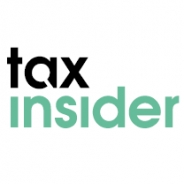
Tax reliefs are available for Furnished Holiday Lettings – but for how much longer?
Introduction
Furnished Holiday Lettings (FHLs) enjoy a number of tax advantages over other types of let property. This is because, essentially, they are treated as a trade and as such benefit from reliefs generally available to trades, such as the ability to set losses against other income, entitlement to capital allowances and the availability of Capital Gains Tax reliefs.
Beneficial Reliefs Still Available
The rules governing Furnished Holiday Lettings were due to be withdrawn from 6 April 2010. However, the timing of the election and the limited time in which to rush the Finance Act 2010 through Parliament, granted FHLs a reprieve as the proposed changes have yet to be implemented. This means that, for time being at least, the reliefs available for FHLs remain available.
Who Qualifies?
The reliefs are only available for the `commercial letting of furnished holiday accommodation’. To qualify, the property must be in the UK (or, from 2008/09 onwards, anywhere in the EU), and
- be available for holiday letting on a commercial basis for at least 140 days in the tax year;
- actually be let for at least 70 days; and
- has no periods of longer-term occupations that, in total, exceed 155 days in the tax year,
The let is regarded as commercial if it is on a commercial basis with a view to realising a profit.
Furnished Holiday Lettings and Capital Gains Tax
From a Capital Gains Tax perspective, a number of such reliefs available to businesses are available in respect of FHLs. These include:
- Business Assets Roll-Over Relief;
- Gifts Hold-Over Relief; and
- Entrepreneurs' Relief.
Business Assets Roll-Over Relief
Business Asset Roll-Over Relief enables the Capital Gains Tax liability arising on the sale of a property let as furnished holiday accommodation to be deferred where the proceeds are reinvested in new property, which is also to be let as furnished holiday accommodation (or used in another trade).
The new property must be purchased in the period spanning between one year before and three years after the sale of the old property. If all of the proceeds from the old property are invested into the new property, there is no Capital Gains Tax to pay when the old property is sold.
Instead, the base cost of the new property is reduced by the capital gain attributable to the old property. If the proceeds are only partly reinvested, the portion of the gain attributable to the reinvested profits is deferred with the remainder coming into charge.
The gain may similarly be deferred if the property is given away, for example if a parent gives a property let as an FHL to a son or daughter. On the making of a claim by both parties, the Capital Gains Tax liability is deferred until the recipient sells the property.
Entrepreneurs' Relief
Entrepreneurs' Relief is available if a person ceases the FHL trade and sells the assets of the business. The Relief, which is subject to a maximum lifetime limit, reduces the amount of the gains chargeable to Capital Gains Tax by 4/9ths, thereby reducing the effective rate of Capital Gains Tax to 10%. The maximum lifetime limit was doubled to £2 million from 6 April 2010.
Strike While the Iron’s Hot...
With a new government in power, it remains to be seen whether the proposals to withdraw the favourable treatment of Furnished Holiday Lettings will be implemented. If they are, and the speculation on planned Capital Gains Tax changes proves to be true, this will be something of a double whammy as not only will the reliefs cease to be available, it is possible that once again, Capital Gains Tax will be payable at the taxpayer’s marginal rate of Income Tax rather than the current (low) Capital Gains Tax rate of 18%.
Practical Tip
For anyone who is thinking of selling a Furnished Holiday Let, there are difficult decisions to be made. Where Entrepreneurs' Relief is available, a Capital Gains Tax rate of 10% looks very attractive. As for deferring gains, the gamble may well be whether to pay 18% now or pay nothing now but risk having to pay 40% or even 50% later.



Please register or log in to add comments.
There are not comments added